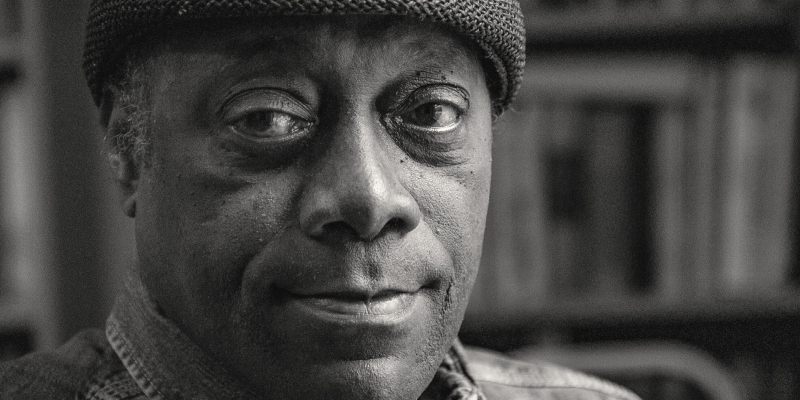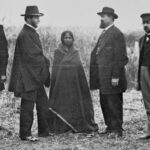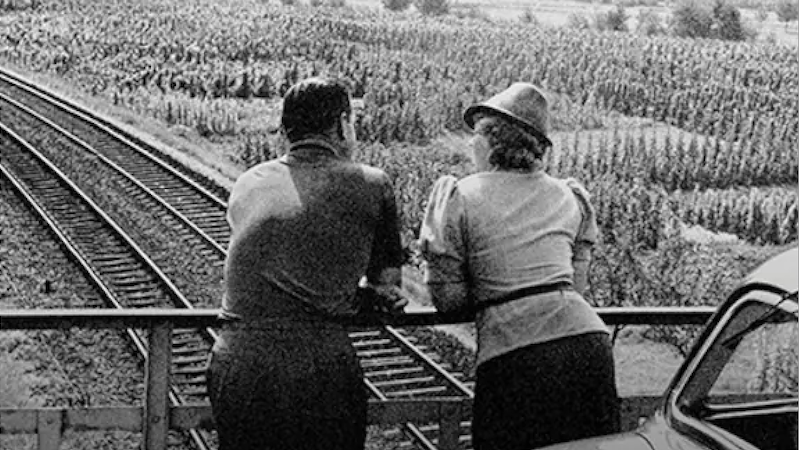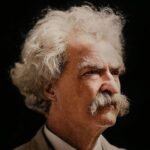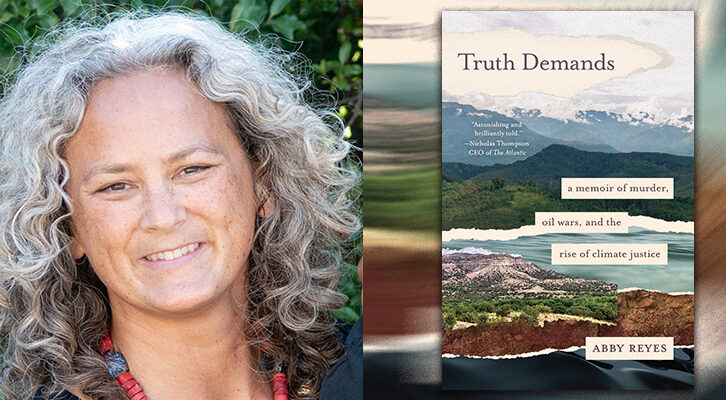Remembering an American Writer: Anthony Walton on James Alan McPherson’s Essays and Legacy
In Conversation with Whitney Terrell and V.V. Ganeshananthan on Fiction/Non/Fiction
James Alan McPherson is famous as the first Black writer to win the Pulitzer Prize in fiction; a new book aims to bring fresh attention to his masterful nonfiction. The volume’s editor, poet and writer Anthony Walton, joins V.V. Ganeshananthan and Whitney Terrell to discuss On Becoming an American Writer, a collection of McPherson’s essays. Walton explains McPherson’s moral vision for the US and how this shaped the book’s curation.
He highlights how the theme of ancestors connects various pieces, notes the impact of McPherson’s legal training on his writing, reflects on McPherson’s take on the middle class, and considers how McPherson’s work speaks to society today. He also reads from the book’s first essay, “Junior and John Doe.”
Check out video excerpts from our interviews at LitHub’s Virtual Book Channel, Fiction/Non/Fiction’s YouTube Channel, and our website. This podcast is produced by Anne Kniggendorf.
*
From the episode:
Whitney Terrell: I remember going to visit Jim in Iowa City, and he was having some issues with taxes. He was talking to me about it, and he was like, “I just didn’t want to turn it into something middle class.” And I realized, when he was talking about wanting to avoid that conformity of the middle class, it was really a part of his life. I think he applied that to everyone, like you should try to stay out of that particular set of ideas. I also find that is a living part of his work, constantly talking about that.
Anthony Walton: Certainly, if you think about where he came from, and because of where he ended up, I think we often forget that this was a boy born into some of the most ferocious segregation: Jim Crow in Savannah, Georgia, South Georgia, in the ’40s. He always had a complex relationship with mainstream middle class, upper class, America. I think he negotiated it quite well. He talks in one of his essays about how he knew lower class America very well, and upper class America very well, and one of the reasons he wrote was to try and understand the middle. But I think that we should always remember that as a young person, he came from way outside. And so he’s always going to have a jaundiced eye on what’s going on in, you know, DuPage County, Illinois, or whatever you want to call it, because he knew the shadows.
WT: I think he’s also saying to those of us who did come from middle class white backgrounds that there’s a deadness to that culture, certainly something that I felt and identified with.
V.V. Ganeshananthan: I just want to add that it’s impossible for me to think about Jim’s comments about the middle class without also thinking about, for instance, the other night I was watching the State of the Union, and the Democratic Party is constantly hanging… I mean, both parties are really, but the Democratic Party kind of hangs its hat on the idea that the middle class should be accessible to everyone. So when you think about the failure, the “this did not happen” line that ends the section that you read, that’s just an example of it, because we now constantly talk about in our politics, the middle class is the place we want to reach. I think maybe another thing he was getting at is neoliberalism, right?
WT: And then the politics of respectability. I think he would have hated that idea of the politics of respectability. I know that he did.
VVG: Right, the idea of the middle classes, the goal being inevitably connected to neoliberalism and our present politics in the way that they are threatening to trap us.
AW: Yeah, and he was always worried about people getting trapped in materialism and that aspect of middle class society and neoliberalism and life being reduced to that. One thing I would add that I would hope would illuminate a little bit, I think he, coming out of that Southern Jim Crow society, knew that there were millions of African Americans who were extraordinarily evolved and compassionate human beings in that society, even though they were excluded. It’s something that I have thought a lot about, and it’s part of what my book Mississippi is about.
But I think about my aunts and uncles in Mississippi and what wonderful human beings they were, and that just went kind of under the radar for such a long time in the wider American society. I think that was something that James was just coming back to all the time in both fiction and nonfiction.
WT: So many of these essays feel extremely contemporary. The stuff we’re talking about right now is extremely contemporary, even if they were written a while ago. So here are some recent events: Kanye West brought white nationalist and anti-semite Nick Fuentes to dinner at Mar-a-Lago with Donald Trump. We did a whole episode on that. And at the same time, Donald Trump and current Israeli Prime Minister Benjamin Netanyahu have been incredibly close supporters of each other in this incredible dissonance. In all of those connections, how can McPherson’s essay “To Blacks and Jews: Hab Rachmones” help us understand this if it can?
AW: Well, first of all, if I may, I think Kanye West would be a perfect example of what McPherson is talking about, people getting lost in a kind of American materialism and chase of money and that kind of Gatsby-esque glittery success that at the middle ends up being very hollow. I think Kanye would be a perfect example of that.
I think that the essay is extraordinarily important. And I think that what it can teach us today is that it helps us to see that Blacks and Jews have parallels and affinities in terms of being outsiders and in terms of being groups that are trying to enter the mainstream, I don’t know, WASP society – one way people might have talked about it 20 years ago. But they also, as well as having these kinds of parallel desires to enter and become successful, they’re also coming at a very different subjectivity. And those differences also lead to clashes.
One of the big clashes, which he talks about and helps us understand in that essay, is that most Jews are what Americans would call white. To the average Black person that seems like a very kind of both unfair and even suspicious advantage. Because you can step over and be with the other group if you want to or need to. And also, I think that that leads to this kind of suspicion that we see in a lot of Black anti-Semitism of Jewish success, and James talks about that as well. And so it’s like, how are they doing this?
And speaking as an African American, I feel like that comes from a lack of understanding of all of the components of what it takes to make it in America. He’s very plain about that, about Jewish interest and fidelity to education, to tradition, to being able to have held onto their long-term traditions, which for African Americans were often destroyed or at least maimed. And so that becomes where those affinities and parallels start to break down. And I think that his essay is an example of how he can help us, how his work can help us learn to think about these things with more complexity and more seriously.
VVG: So pivoting to another essay, Whitney and I both share a fandom of Richard Pryor. I know, we discussed it in Jim’s class and Whit, I don’t know if you did, but my fandom preceded this and then of course, kind of in conversation with Jim it just expanded. So he was one of my favorite actors and comedians, and I was thrilled to read the 1975 essay interview that McPherson did with him in this collection.
And he writes, and I’m quoting here, “[Pryor’s] characters in his humor are winos, junkies, whores, street fighters, blue-collar drunks, pool hustlers—all the failures who are an embarrassment to the Black middle class and stereotypes in the minds of most whites. The Black middle class fears the glorification of those images and most whites fear them in general.” How does this connect back to the first essay, “Junior and John Doe”?
AW: Well, I think if you think about his concern about Blacks just mindlessly trying to join the middle class, the white middle class, and forgetting their past while they’re doing that, forgetting what is great and sustaining about African American culture, what he’s talking about there is Richard Pryor, who, first of all I want to say we often forget that his celebrity kind of obscures his accomplishment as an artist. Often we think of him as the drug addict who was constantly out of control, and we forget what an absolutely brilliant artist he was.
Pryor had an ability to kind of make contact in his art with various areas of Black society that people pushing for respectability, for example, they don’t want that, they’re trying to leave that behind, whether it’s a street person or a person who lives off the grid, so to speak, Mudbone, someone like that in the south, that is what a lot of people trying to reach the middle class are trying to run away from.
Pryor is pointing at that, and he’s saying that’s also part of who we are. And we need to remember that, and he’s doing it in a way that is hilarious and heartwarming, and that the very people who are running away from it also have to admit that they love. But again, because this is America, and because of the complexity of America, they also don’t necessarily want white folks looking at this because their thinking is painful or whatever. I think that that’s something that he very much put his finger on.
Selected Readings:
Anthony Walton
• On Becoming an American Writer (ed.) • Mississippi: An American Journey • Brothers in Arms (with Kareem Abdul-Jabar) • Cricket Weather
Others:
• The Family Chao by Lan Samantha Chang • “Trump Criticized for Dining with Far-Right Activist Nick Fuentes and Rapper Ye,” – The Washington Post • Fiction/Non/Fiction Season 6 Episode 11: The Best and Worst Dinner Parties in Literature: Mar-a-Lago Edition, Featuring Michael Knight • Clarence Thomas • Invisible Man by Ralph Ellison • Shadow and Act by Ralph Ellison • Going to the Territory by Ralph Ellison • Hue and Cry by James Alan McPherson • Crabcakes by James Alan McPherson • Elbow Room by James Alan McPherson • “On Becoming an American Writer,” by James Alan McPherson (essay)

